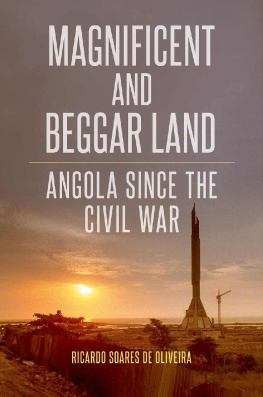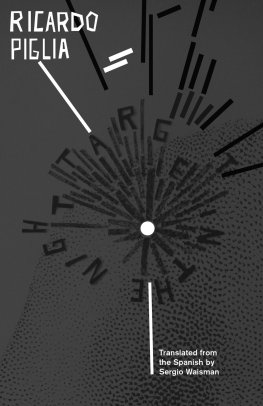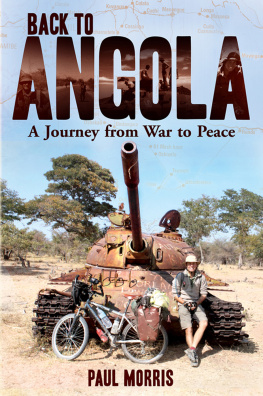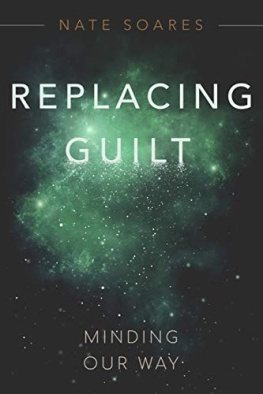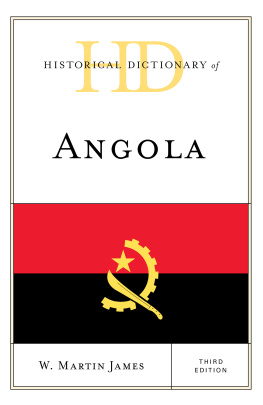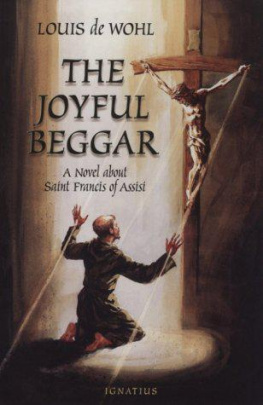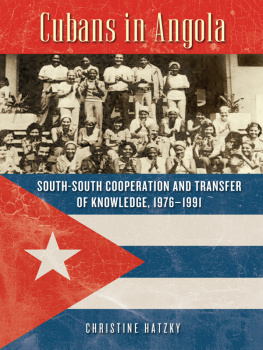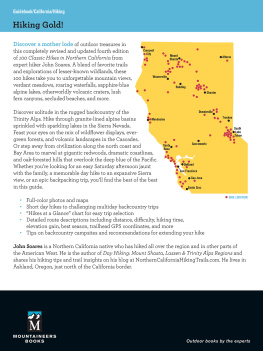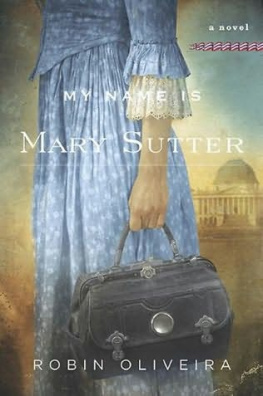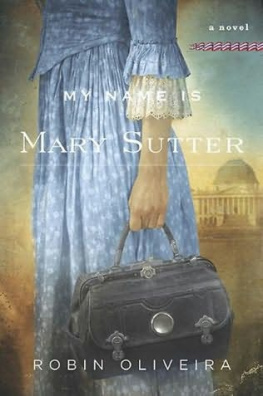Ricardo Soares de Oliveira - Magnificent and Beggar Land: Angola Since the Civil War
Here you can read online Ricardo Soares de Oliveira - Magnificent and Beggar Land: Angola Since the Civil War full text of the book (entire story) in english for free. Download pdf and epub, get meaning, cover and reviews about this ebook. year: 2015, publisher: Oxford University Press, genre: Politics. Description of the work, (preface) as well as reviews are available. Best literature library LitArk.com created for fans of good reading and offers a wide selection of genres:
Romance novel
Science fiction
Adventure
Detective
Science
History
Home and family
Prose
Art
Politics
Computer
Non-fiction
Religion
Business
Children
Humor
Choose a favorite category and find really read worthwhile books. Enjoy immersion in the world of imagination, feel the emotions of the characters or learn something new for yourself, make an fascinating discovery.
- Book:Magnificent and Beggar Land: Angola Since the Civil War
- Author:
- Publisher:Oxford University Press
- Genre:
- Year:2015
- Rating:5 / 5
- Favourites:Add to favourites
- Your mark:
- 100
- 1
- 2
- 3
- 4
- 5
Magnificent and Beggar Land: Angola Since the Civil War: summary, description and annotation
We offer to read an annotation, description, summary or preface (depends on what the author of the book "Magnificent and Beggar Land: Angola Since the Civil War" wrote himself). If you haven't found the necessary information about the book — write in the comments, we will try to find it.
Magnificent and Beggar Land: Angola Since the Civil War — read online for free the complete book (whole text) full work
Below is the text of the book, divided by pages. System saving the place of the last page read, allows you to conveniently read the book "Magnificent and Beggar Land: Angola Since the Civil War" online for free, without having to search again every time where you left off. Put a bookmark, and you can go to the page where you finished reading at any time.
Font size:
Interval:
Bookmark:

RICARDO SOARES DE OLIVEIRA


Oxford University Press is a department of the University of Oxford. It furthers the Universitys objective of excellence in research, scholarship, and education by publishing worldwide.
Oxford New York Auckland Cape Town Dar es Salaam Hong Kong Karachi Kuala Lumpur Madrid Melbourne Mexico City Nairobi New Delhi Shanghai Taipei Toronto
With offices in Argentina Austria Brazil Chile Czech Republic France Greece Guatemala Hungary Italy Japan Poland Portugal Singapore South Korea Switzerland Thailand Turkey Ukraine Vietnam
Oxford is a registered trade mark of Oxford University Press in the UK and certain other countries.
Published in the United States of America by Oxford University Press 198 Madison Avenue, New York, NY 10016
Ricardo Soares de Oliveira 2015
Published in the United Kingdom in 2015 by C. Hurst & Co. (Publishers) Ltd.
All rights reserved. No part of this publication may be reproduced, stored in a retrieval system, or transmitted, in any form or by any means, without the prior permission in writing of Oxford University Press, or as expressly permitted by law, by license, or under terms agreed with the appropriate reproduction rights organization. Inquiries concerning reproduction outside the scope of the above should be sent to the Rights Department, Oxford University Press, at the address above.
You must not circulate this work in any other form and you must impose this same condition on any acquirer.
Library of Congress Cataloging-in-Publication Data is available for this title.
ISBN 9780190251383 (hbk.: alk. paper); 9780190251390 (pbk.: alk. paper)
ebook ISBN 9780190251413
1 3 5 7 9 8 6 4 2
Printed in the United States of America on acid-free paper
To Devika
I have been fascinated by Angola for more than fifteen years and incurred extraordinary debts in the process of trying to understand its paradoxical history of tragedy and immense promise. On the basis of my own experience and expertise, the book seeks to make sense of this magnificent and beggar land, to borrow Joseph Brodskys words, as it left a long war behind. My greatest thanks goes to the many Angolans who spoke to me with candour, especially between 2009 and 2013. Most of these interviews and conversations were confidential. It goes without saying that neither they, nor anyone thanked below, share any responsibility in regard to the interpretation put forward in this book or any mistakes that may have crept in.
A project on this scale would not have been possible without the generous support of the Leverhulme Trust, which granted me a Research Fellowship during the academic year of 201112. As a result, I was able to conduct the necessary fieldwork and gather material for this book. The Leverhulme Trust did not hesitate to support the high costs of fieldwork in Angola and kept bureaucratic matters to a minimum. I thank the Master and fellows of St Peters College and the Department of Politics and International Relations at the University of Oxford for the granting of research leave on this occasion. I am also pleased to acknowledge a 2009 Small Research Grant from the British Academy that financed three trips to Angola and the productive time spent at Sciences Po as OXPO Visiting Professor during March and April 2012. An associated senior researcher position at the Christian Michelsen Institute in Bergen since September 2013 has provided me with access to an outstanding group of researchers, many of whom with more than a decade of experience in Angola. Lastly, I want to express my continued appreciation of the work of the Global Public Policy Institute, to which I have been attached since 2005, and in particular to Wolfgang Reinecke and Thorsten Benner.
While in Luanda, I benefited from the wonderful hospitality of my friend Alexandre Manuel Santos and his late mother, Dona Maria Alice Santos. Dona Alice, the former director of the celebrated Santa Teresinha School in Sumbe, was a formidable character and an Angolan patriot. Manuels house was like home to me, and I do not have enough words to thank him and his friends for welcoming me in such a way. Also in Luanda, I was privileged to be able to discuss energy-related matters with Jos Oliveira. Manuel Alves da Rocha, the director of the Centro de Estudos e Investigao Cientfica (CEIC) at the Catholic University of Angola, an island of excellence and the countrys major research center, was generous with his time and knowledge, as were Nelson Pestana and Regina Santos. The following people have offered valuable observations over many conversations: Fernando Pacheco, Jernimo Belo, Rafael Marques, Srgio Calundungo, Miguel Gomes, Carlos Leite, Carlos Rosado de Carvalho, Cesaltina Abreu, Arlindo Barbeitos, Maria Alexandre Dskalos, Belisrio dos Santos and the late Joo Van Dunem.
I also owe a debt of gratitude to Angola scholars Didier Pclard, Michel Cahen, Justin Pearce, Assis Malaquias, Antnio Toms, Paulo Ingls, Chlo Buire, Ana Duarte, Cheryl Schmitz, Claudia Gastrow, Paula Roque and Sylvia Croese, who provided me with valuable insights, as well as Jon Schubert and Marissa Moorman for sending me two important, then-unpublished papers. Mathias de Alencastro was a source of knowledge about the Lundas as well as a great travel companion in the east of Angola. In particular, Id like to acknowledge the generosity of the late Christine Messiant, whose outstanding work on Angola continues to influence me. I met Christine in 2003 during a five-month stay in Paris, and she gave me precious advice in the following two years about research on Angola.
Perhaps the most exciting aspect of researching and writing this book was the opportunity to see a new generation of researchers emerge whose work is changing our knowledge about Angola and placing this crucial African state at the forefront of academic and policy debates about the continent as a whole. Research in Angola remains a difficult and very expensive enterprise but the excitement more than compensates for the drawbacks. In collaboration with Manuel Ennes Ferreira, I organized a conference on Angolan research in Oxford in July 2011. In March 2014 we co-organized a follow-up event with Aslak Orre and Mathias de Alencastro. These events were collaborations with Lisbons ISEG, CMI, and three Luandan universities, the Catholic University of Angola, Lusada University and the Economics Faculty of Agostinho Neto University. I am grateful to the participants in the two conferences for their excellent contributions and hope that such gatherings of scholars become more frequent and increasingly take place in Angola itself.
Kathryn Allawalia of ForeignAffairs, Tom Burgis of the Financial Times, and Rosemary Bechler at Open Democracy kindly commissioned or accepted to publish short pieces on Angola that were helpful in clarifying my thinking on this subject. In addition, the first section of Chapter 1, parts of Chapter 2, and the last section of Chapter 3 are based on papers I published in the Journal of Modern African Studies (2007 and 2011) and in Politique Africaine (2013). Michael Dwyer at Hurst Publishers, as well as Jon de Peyer, Rob Pinney and Fatima Jamadar, were once again a wonderful team to work with, and I thank them for the dedication they have shown towards this book.
Font size:
Interval:
Bookmark:
Similar books «Magnificent and Beggar Land: Angola Since the Civil War»
Look at similar books to Magnificent and Beggar Land: Angola Since the Civil War. We have selected literature similar in name and meaning in the hope of providing readers with more options to find new, interesting, not yet read works.
Discussion, reviews of the book Magnificent and Beggar Land: Angola Since the Civil War and just readers' own opinions. Leave your comments, write what you think about the work, its meaning or the main characters. Specify what exactly you liked and what you didn't like, and why you think so.

